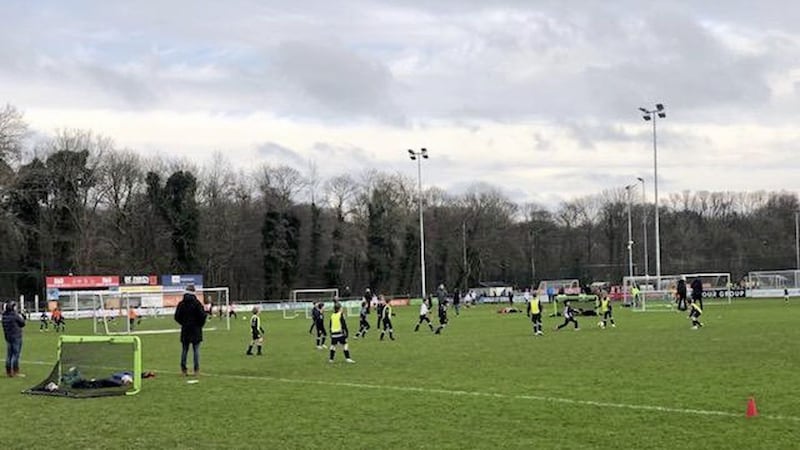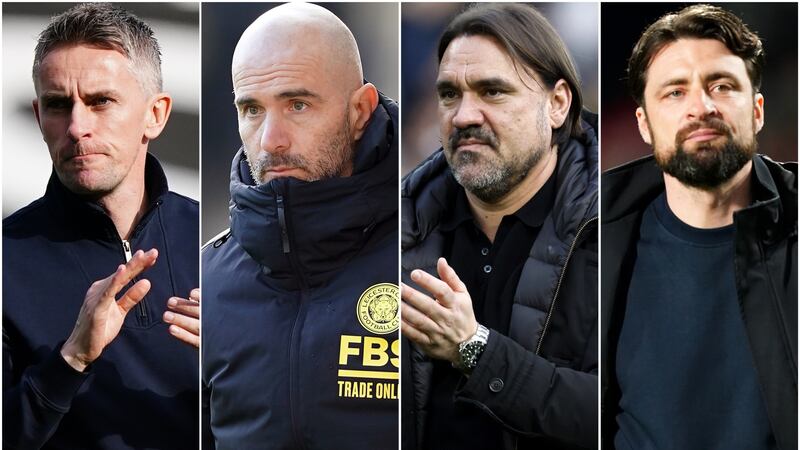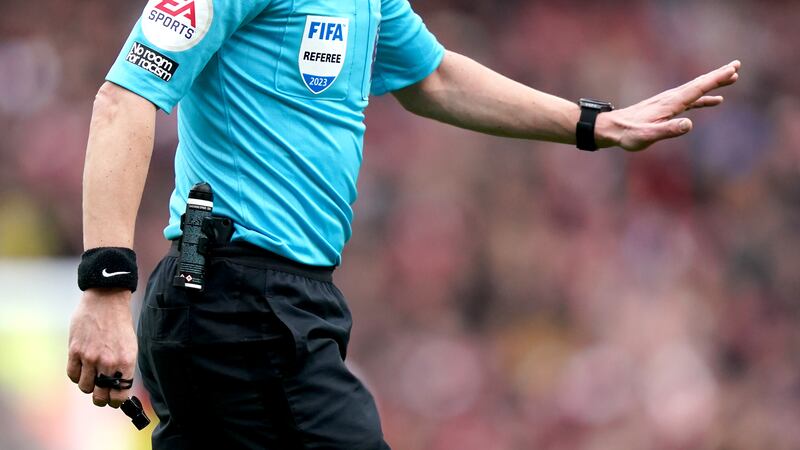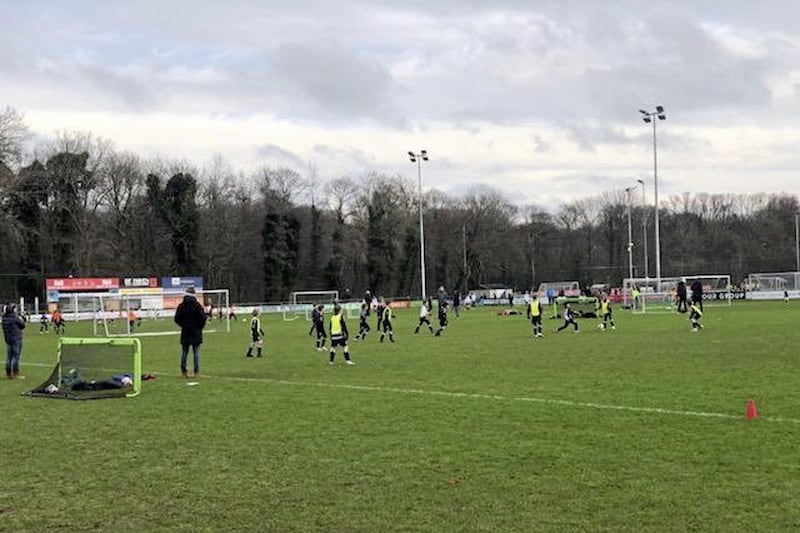With children's outdoor sports banned across the island of Ireland, Brendan Crossan takes a look at how European nations Holland and Sweden are handling Covid and the impact of Covid....
Holland: In Profile
FOR the past couple of weeks, the Netherlands has been in the news for all the wrong reasons. Anti-lockdown riots took a firm hold in some cities, particularly Amsterdam, as protestors demanded an end to the country’s 9pm curfew and other restrictions that have been introduced to drive down the Covid19 transmission rates.
At half-six on Tuesday morning, Johan van Streun and a few of his work colleagues were busy clearing snow from the entrance to the Friendship Sports Centre in Amsterdam.
“We were completely locked down…. by the snow,” he says, with a chuckle.
“But we had a lot of fun and we managed to clear the snow and open the gate. And now the sun is shining...”
Because of the heavy snowfall, the re-opening of primary schools, scheduled for last Monday, was delayed by a day.
Remote online learning continues for the “upper schools”.
Meanwhile, outdoors sports for children under 18 continue to thrive.
Johan van Streun lives his life through the prism of sport. He juggles two jobs – one is as an interim manager with the Only Friends group, based at the Friendship Sports Centre in Amsterdam where they cater for 800 children with disabilities.
“We coach children who may have a physical or mental disability, or illnesses such as cancer,” he says.
“We have 28 sports. It’s great to work there. It doesn’t feel like work.”
And when he’s not making the half-hour journey to the Sports Centre he helps co-ordinate the coaching of 1,200 kids at his hometown club Koninklijke HFC (translation Royal HFC) in Haarlem – a top amateur club that sits on the cusp of Holland’s top two professional leagues.
They have five full-sized outdoor pitches and one smaller one.
Similar to the restrictions in Ireland – both north and south - Koninklijke’s senior team haven’t played any official games since last March as they don’t qualify for ‘elite’ status.
Football's governing body there still holds out the hope of a resumption for amateur football in late March, but Johan senses time is running out on them.
Unlike Ireland, however, their youth sections are largely unaffected.
For children under 18, they are allowed to train and play matches together as normal, but are prohibited from playing matches with other clubs.
Players can only train in pairs over the age of 18.
“We have selection teams and fun teams at the club. In total we have 1,200 children up to 18,” Johan explains.
“We train with the children, the selection groups, three times a week and on Saturday we mix teams and we play against each other. The club is open seven days a week.
“We are not allowed to have parents at our sporting complex so they have to bring children to the fence. It’s only children and of course the trainers. The clubhouse is closed. You’re not allowed to go to the dressing rooms or have showers at the club.
"So everybody is coming in their sporting outfit, they do their training and leave again. It’s not 1.5 metres distance between the kids because kids up to 18 may play normal. And above 18 you have to distance one-and-a-half metres and only in pairs of two. That’s the rough lines how we are doing things and everything is outside.”
He adds: “The first lockdown last March, we had a small period that there was a lockdown for everybody because the virus was new. After a small period, the children were allowed to start again.”
Almost 15,000 people have perished since the start of the pandemic in Holland 11 months ago, with the total number of cases nudging over one million.
They have endured two Covid19 peaks in recent months. On October 30, new cases reached 9,804. On December 23 the number climbed to 11,499.
With the emergence of new, more transmissible mutations of the virus, European governments are getting twitchy.
A 9pm curfew was introduced on January 23 and will be reviewed on March 3.
The “evening clock”, as Johan calls it, hasn’t been popular but arguably a necessary tool to reduce transmission rates. Alongside other restrictions on the retail, service and cultural sectors, rates have dropped almost as quickly as they shot up. Daily cases sit at around 3,000 and continue to fall.
The Dutch model continues to support the continuation of the top two professional leagues while all adult football below that ‘elite’ level is prohibited, with training limited.
Youth football, meanwhile, continues and remains an essential element of Holland’s public health strategy and message.
“The numbers are going down at the moment. They were quite high during Christmas and for that reason there is an evening clock and the numbers are going down at a quite a high speed,” Johan says.
“We are vaccinating people and it’s going in a good direction. We know in the beginning of March many of the shops and restaurants can be open again.”
Holland’s health service also appears to be more robust and versatile in dealing with Covid19.
“The health service here, from my point of view, is very good. If there was too much pressure, let’s say, in the east part of the Netherlands, patients would move to the north or south hospitals so they have managed that in a very good way. One week around Christmas there was high pressure on the hospitals as well as the intensive care beds but they managed it. The medical service is on a high level here.”
Attendance at Koninklijke has remained exceptionally high throughout the pandemic in both the “selection” and “fun” sections at the club.
Johan says the club has had no known cases among its younger members and “some” cases towards the U18 spectrum.
“We follow the rules of the government. A player [who tested positive for Covid] would not be welcome at the club for a period and they would check with whom they might be in close contact with.”
On Wednesday, an open letter issued to the media, and signed by over 60 sports figures in the north, was sent to the Stormont Executive to demand urgent consideration of the return of outdoor sports for children.
Since the pandemic began, children have been banned from playing outdoor sport for eight out of 11 months.
“The kids still need to get the energy out of them,” says Johan, “and they still want to meet their friends, and they ask to walk to the club. It’s as important as it was before but perhaps it’s more important now.
“I think sport and doing movements is good for everybody especially for youngsters and their mental and physical health as it has a good biological effect on them. So it’s good that they can do sport outdoors. It’s all about safety and you have to take care and behave the way the regulators want you to behave.”
“It’s an extra motivation to keep the football clubs outdoor open. As we are speaking the primary schools are open again in Holland.”
When Johan enquired about the restrictions in Ireland and was informed golf courses were currently closed, he replied:
“They are closed? Golf courses? That is unbelievable. I can’t believe that.”
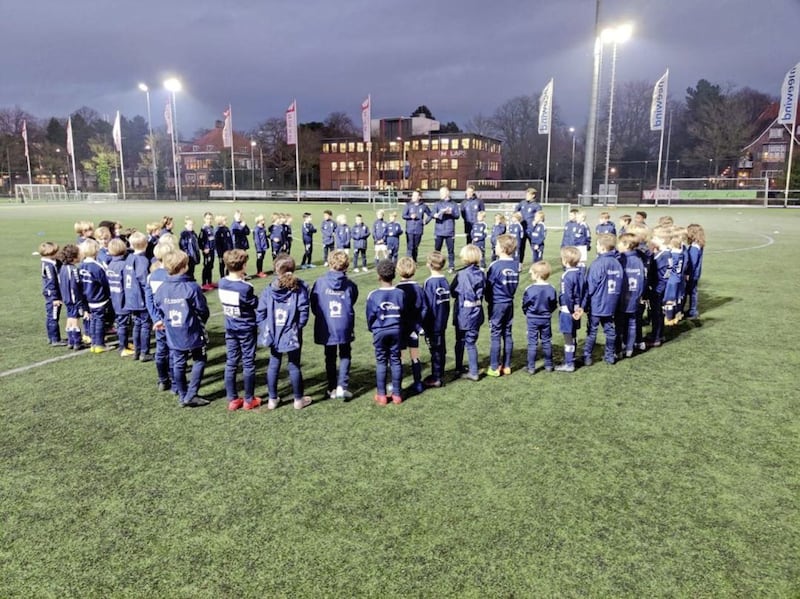
**********************
Sweden: In profile
JOHAN Hellström is a hard man to pin down. We try a Saturday phone-call to his home in Karlstad, mid-west of Sweden.
He can’t do Saturday because he’s booked a weekend spa. Remember spas?
We agree a call on Sunday evening.
A word of caution: If you don’t keep up with Johan, you’ll never catch up. He is a 45-year-old Clinical Exercise Physiologist.
He’s a former elite triathlete who competed in national championships as well as making his bow at European level in 2011 in the 35-39 age category.
He coaches endurance athletes at elite level and also works with some of the best ice hockey players in the NHL.
Over the last 20 years he’s built up an impressive CV in health and fitness at the top level.
We talk the current state of sport in Sweden and Covid19’s impact, but first there’s an important tangent that helps outsiders understand the country’s public health messaging to its citizens during the pandemic.
Johan delves into the minutiae of the various chemicals within the human body. This is the bit where you have to keep up.
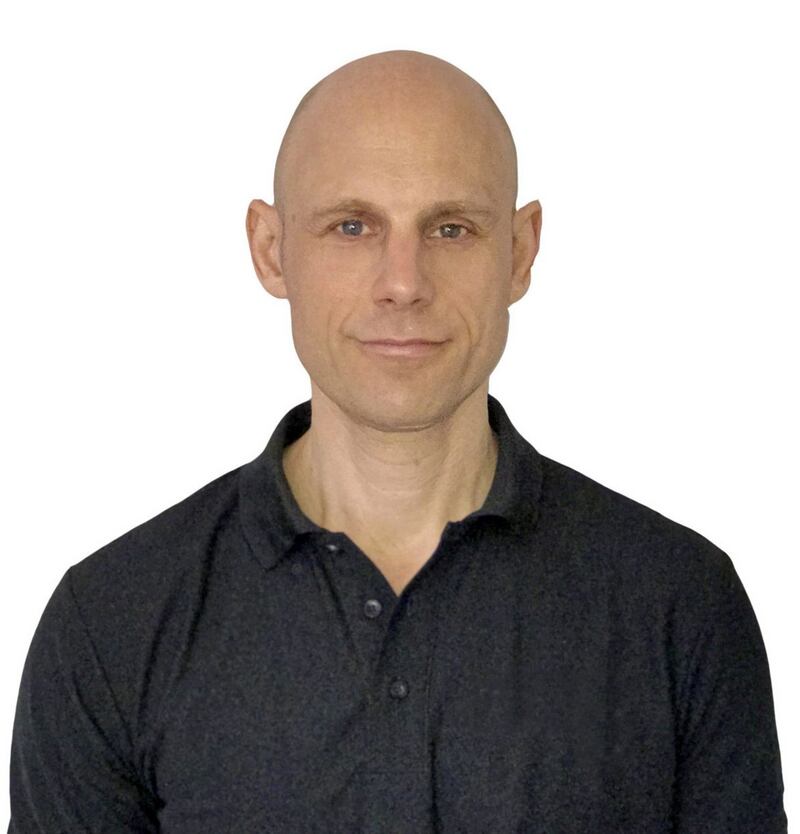
“Think of cortisol as nature’s built-in alarm system,” he explains.
“It’s your body’s main stress hormone. It works with certain parts of your brain to control your mood, motivation, and fear. It’s best known for helping fuel your body’s “fight-or-flight” instinct in a crisis, but cortisol plays an important role in a number of things your body does.
“For example, it manages how your body uses carbohydrates, fats, and proteins, keeps inflammation down, regulates your blood pressure, increases your blood sugar (glucose), controls your sleep/wake cycle, boosts energy so you can handle stress and restores balance afterward.
“But what if you’re under constant stress and the alarm button stays on? It can derail your body’s most important functions. It can also lead to a number of health problems, especially anxiety and depression."
He adds: “This can cause a condition called Cushing syndrome. People who are socially isolated develop changes in their immune system, which leads to a condition called chronic inflammation. Short term inflammation is necessary for us to heal after a cut or an infection, but if the inflammation persists in the long-term it can contribute towards cardiovascular disease and cancer.”
It's no surprise to learn an elite coach is stressing the importance of sport in a person’s life.
“I’m working with these kinds of questions. What people and some government bodies don’t understand is what is happening within the body when someone is doing a sport. If you understand that, then it’s very easy to understand the importance of sport,” Johan says.
A couple of weeks ago he posted on his Twitter account images of indoor and outdoor sport taking place in Sweden. Kids are playing their sports as normal while gyms are open too.
There appears a greater sense of civic responsibility in Sweden to respect the rules – and freedoms – the sitting government, led by the social democratic party oversee.
Of course, in the early stages of the pandemic Sweden were cast as a kind of ‘maverick’ nation who were perceived to be flirting with a herd immunity approach, and was accused of carrying out "an experiment on people".
Just recently, Halmstad municipality was forced to back down after initially urging school teachers to dispense with face coverings and PPE gear - but there remains a strong anti-face mask lobby in the country.
Any citizen arriving in Sweden must produce a negative Covid test within 48 hours.
Johan readily acknowledges that mistakes were made in the early throes of the deadly virus. Like in many other counties, elderly care homes were badly ravaged and a significant percentage of Covid-related deaths came from the mishandling of the most vulnerable.
To date, Sweden has suffered over 12,188 Covid-related deaths and like most other European nations experienced serious spikes in late December/ early January with new cases currently sitting at around 4,000, roughly the same figure recorded in early November.
“The public health agency was very clear with the first data coming out, the young and the children weren’t really affected by the virus so they took a decision quite quickly to say they would not close schools, we’re not closing down leisure activities and sport and so on, but they would protect the elderly.
“And that’s the path we’ve gone down all the way. Sure, we made a few mistakes, the virus got into the elderly homes and we had an initial high death rate, but it didn’t really change the strategy or the opinion in Sweden.
“The latest report that came out in December when they [European Centre for Disease Prevention] did a complete audit on how the virus affected the ages from one to 19-year-olds. We have 1.5 million schoolchildren, and that’s 180 days per year, and we had two ‘Covid-related’ deaths in that age group.
“If we have that high volume of children going out and about, doing sport and going to school you should see a massive increase in cases, but we can’t see that.”
Johan describes the UK and Ireland’s public health approach as “clumsy” and feels if they continue down the road of heavy lockdowns they will not have the necessary public health base to launch a recovery from Covid.
“By doing that [introducing heavy lockdowns] you create an even bigger problem in terms of public health in general. You’re creating problems with the economy, losing jobs and their mental health, alcohol and drug use.
“You create problems for the next five or 10 years. Of course, we always have that risk that is there but if others had the message that we have which is: ‘Okay, we’re grown-ups. Let’s fight this together in a responsible way.’
“If I could sum it up, it’s so worrying that some countries are concentrating on one aspect of public health.”
While the Irish and British grapple with how best to drive transmission rates down, the value of heavy lockdowns are being questioned more often especially when you consider the Covid-related deaths on both islands, the untold damage done to the economy and all the negative consequences of that, not to mention the impact of children without sport or school.
Sweden, according to Johan, is placing a greater emphasis on maintaining good mental health as much as possible in a crisis, and an integral part of their strategy is elevating the value of sport, not just among children but older people too.
“In terms of sport, Sweden are balancing the risks with the benefits,” Johan says.
“It's extremely important that children and young people continue to be active outdoors with their friends because that is part of the public health strategy here.
"It’s so inexpensive to promote the sports in a safe way and, of course, to make sure children are having a good time.
"That’s where I see the major difference between countries because they’re really focusing on one aspect of public health in the whole spectrum of public health. That’s what surprises me.
“In Sweden, as soon as ICU numbers go down they are very quick in releasing restrictions just to maintain a very good balance between mental health and general public health and protecting the elderly.
“When you come into a crisis or whatever this is, it’s important to look at the whole picture and our expert in this area [Anders Tegnell, the state’s epidemiologist] has said from the start, this virus will be with us for a long, long time and it’s going to take quite a long time before everyone gets the jab and various vaccinations.
“We need to find a way where we can live with this virus in a balanced way so we can maintain a certain level of economy because that’s part of mental health, we need to able to maintain leisure and sports activities; you can go to a gym in Sweden – that’s not a problem, and we need to find a way to work towards the virus.
“We need a few legs to stand on because this is not a six-month exercise – it’s a two or three-year exercise and when we come out of the tunnel we need to stand on a base so we can start to rebuild everything in a certain way. That’s what we’re looking at.”
